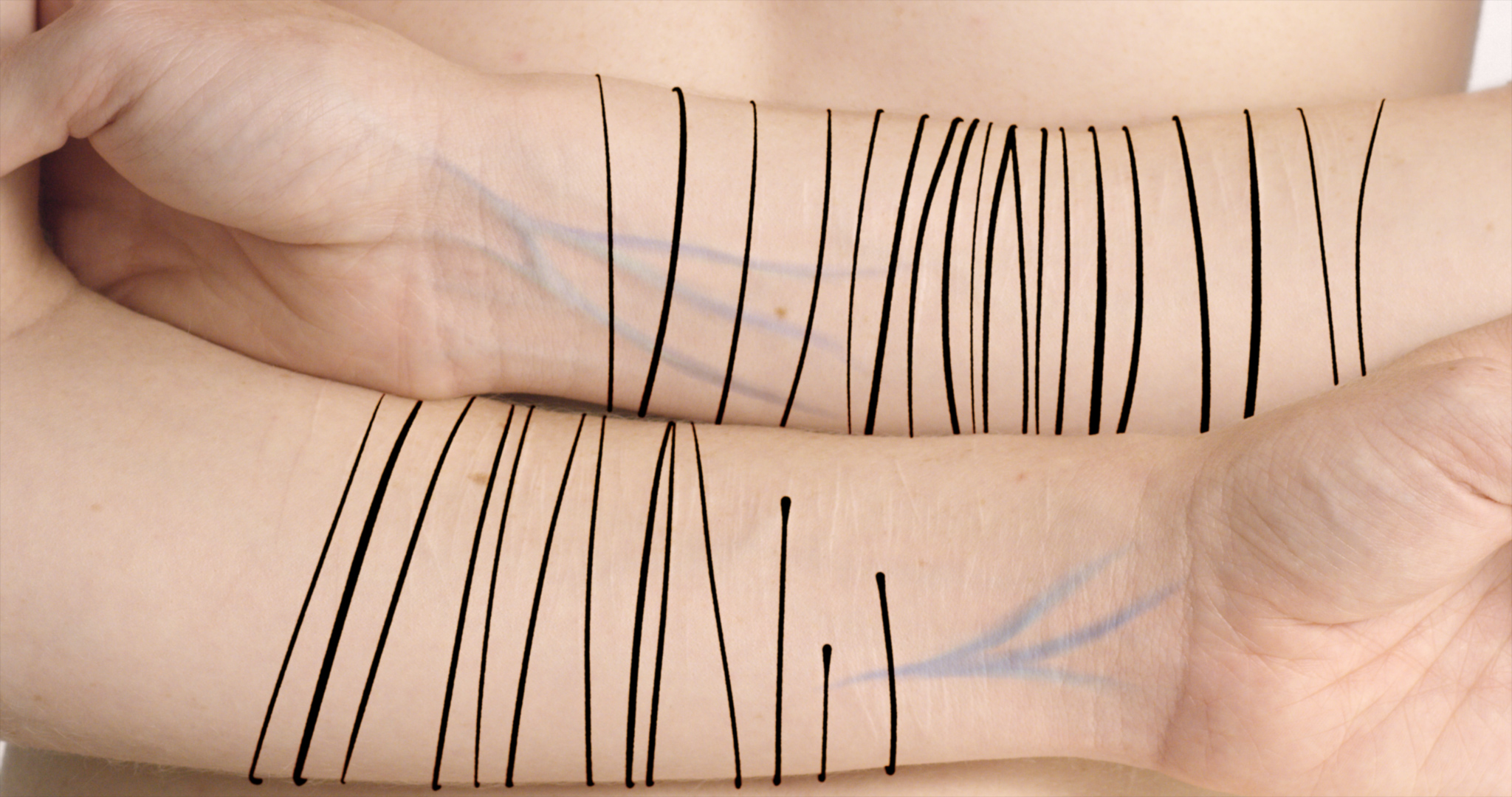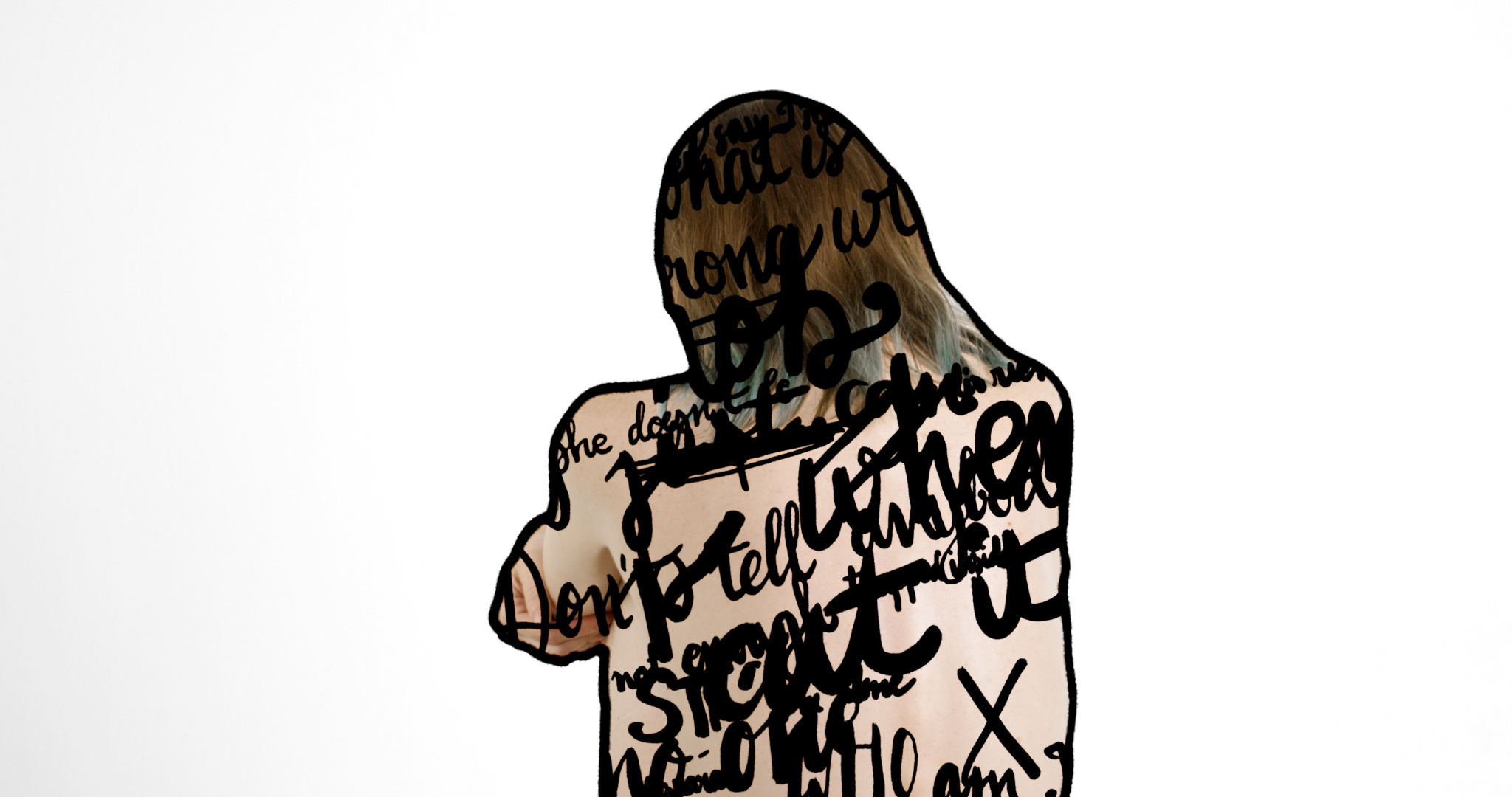Scars Explores Sadness and Healing: An Interview with Director Alex Anna
Debuting this week at the Toronto International Film Festival, Scars is a short documentary film created by queer and feminist filmmaker Alex Anna. Through an elegant combination of live action and animation she tells the story of her own experiences with self-harm.
Wait. Before you stop reading, take a breath. The topic of self-harm might make you uncomfortable, but that is all the more reason to read on. If you have not experienced it, it might frighten or confuse you. If you have experienced it you may feel shameful or embarrassed, or prefer not to make others uncomfortable by showing your scars or talking about it. Others avoid the subject to avoid being triggered to self-harm again once they have stopped. These are the issues creator Alex Anna is confronting with the film. She bravely delves into this taboo topic, using her own life to illustrate her message: We need to stop ignoring each other’s emotions. The film is intimate and straightforward, providing a refreshing look at something most people look away from.
This artful 10-minute glimpse into Anna’s own mental health struggles can help you understand self-harm in a new way. If someone you love– your child, your partner, your friend– has self-harmed and you don’t understand why, watching this film will help you practice being there for your loved one as you simply witness this person’s journey.
If you have experienced self-harm, this film is an answer to the question “am I the only one who feels this way?” You should know the film is not violent at all, and does not glorify self-harm. It does contain imagery of cuts and bleeding (all animated). That being said, Scars is one of the first storytelling experiences I have had that does not flinch or minimize sadness but also does not over-dramatize it. Anyone who has mental health struggles–whether self-harm is part of those or not– will find this film incredibly validating. Many people never tell the story of their harming, leaving each person separate and alone. The film’s main point is to remove the taboo and open up conversations. Others find their way through this forest too.
Even if you don’t know anyone who self-harms, and haven’t thought much about it, this film is relevant. It uses the specifics of self-harm to speak to the universal human experiences of isolation, sadness, addiction and healing. It explores the missing pieces in our emotional and mental health: talking to each other, showing our pain, telling our stories. No matter how painful, uncomfortable or difficult.
Delicate and unafraid, this film is a door being cracked open, an invitation to walk through a dark place with someone and to allow someone to walk through your dark places with you. Scars premiered September 15, 2020 at Toronto International Film Festival.
I had the honor of interviewing director Alex Anna. Read on for her insights and perspectives about the process and purpose of making this rare film.

Melissa Lyman: What inspired you to make this film?
Alex Anna: I have been wanting to do a film about self harming for a long time, since it is a very personal subject for me that is not represented enough in my opinion. For years I couldn’t find the proper way to express those complex levels of beauty and violence - I have been focused on the idea of a fictive character, and a strictly realistic treatment of self harming, until I realized that the character I needed to tell this story with authenticity was myself, through a more poetic documentary form.
ML: What were some of the challenges in this process?
AA: Of course the fact that it is so personal was a whole thing to accept and process. To protect myself from pressure or unwanted comments, we have worked in secret : for over two years, until the film was announced for the TIFF [Toronto International Film Festival] just a month ago, almost nobody knew we were doing it - including our friends and family. It was challenging but necessary to hide this project. In technical terms the animations required over 10 weeks of hard work and we all learnt a lot in the process.
ML: What are your hopes for people who watch the film?
AA: I hope Scars will help break the silence around self harm. I hope people will understand the importance of talking about it, of not being ashamed of it - whether they are struggling with it themselves or their loved ones are.
ML: I noticed you regard your scars with a sense of compassion. You mention they stand as a testament to a part of your life. Many people with similar scars choose to cover them with tattoos or clothing to avoid the memories. I find your approach refreshing. What makes you choose to keep them? Do you feel any differently about them after making this film?
AA: Most of the time, my scars make me feel unique and powerful - to me, they’re saying how strong I am to have overcome depression, to still be alive. Thanks to making this film, I am now ready to defend them to anyone who’d say, “it’s just some teenager’s stupid habit right?” - I can now use them as a tool to open the dialogue around mental health, and always find it’s a relief for everyone to talk about it.
ML: I admire the use of nudity in the film, echoing the message of vulnerability and naked truth. Will you talk about the choice to use nudity and what that was like for you?
AA: I’ve always been fascinated and inspired by nudity in Ancient Greek & Roman Art. I have also worked with nudity as a photographer and a model since I was 18, and through this work I learnt how empowering and beautiful the experience of posing nude can be - I would encourage everyone to try it. I think nudity in the Arts has a wonderful power : it takes us back to our core, to what and who we are without any disguise. Therefore using my body and my scars as a canvas has been a natural option for me to work with. The whole crew has been really respectful during the shooting, after only a couple of hours it felt so natural we were all laughing about it.
ML: A lovely message I took from the film is the wish that scars and sadness need not be taboo. You said you think you would be happy if "we all stop trying to constantly ignore each other's sadness." When did you start feeling this way and how has it changed you?
AA: I started feeling this way some years after I stopped cutting myself, when I first tried to discuss it openly. It was a big step for me, but it was only met with silence - my partner at the time didn’t want to talk about it, and later confessed that she “didn’t like to deal with sad people”. That’s when I started to realize there was a bigger issue than I thought, and how impossible it seemed for people to react to other people’s sadness. For years and years I thought people didn’t care about me, that “my scars” weren’t interesting, but the film finally opened the dialogue and let me understand that the problem stands more in the lack of tools people have to express their sad feelings and reach out to their loved ones who need it - they just don’t know how to do it.
ML: Is there anything you would like to say to those who are self-harming now? What about advice for their loved ones?
AA: To those who are self harming now, I would like them to know that they’re not alone, but that they are unique, wonderful and worth it. I would encourage them, if they’re trying to stop self harming, to try and find other ways and distractions to cope with their anxiety, sadness and urge to self-harm; such as using a marker to draw on their body instead of cutting. For their loved ones; I would advise them to show their support and care to someone who’s struggling, and to never shame them for self harming or force them to stop. I hope the film will encourage them to be brave and break the silence. We all need it.
Scars is available online on the Toronto International Film Festival platform until September 19, 2020 (tiff.net – accessible in Canada), and on the Atlantic International Film Festival from September 17 to 24, 2020 (finstream.filmfestival.ca – accessible in Canadian Atlantic Provinces). After that, please follow the film page for more upcoming festivals.
You can follow Alex Anna on Facebook @AlexAnna.Films or @ScarsByAlexAnna and Instagram @___alexanna___
